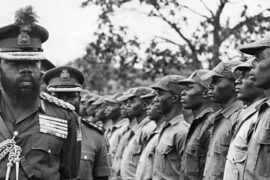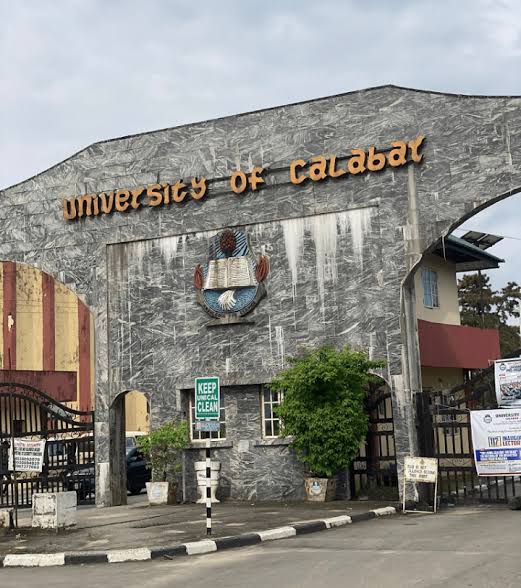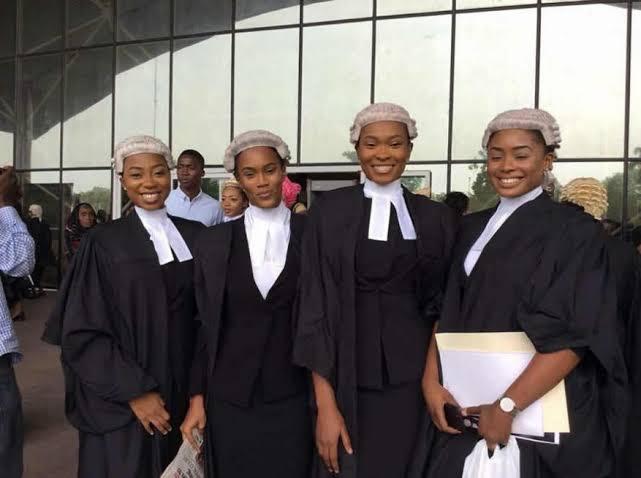How Igbos left Nigeria in the hands of Hausas and Yorubas after the Civil War- Nwafor Orizu’s son

The late Prince Nwafor Orizu is one of the architects of present-day Nigeria. Born on July 17th, 1914 in Nnewi, Anambra State, South Eastern Part of Nigeria, he served as Nigeria’s second Senate President from November 16, 1960 to January 15, 1966, during the Nigerian First Republic. Orizu was also the Acting President of Nigeria from late 1965 until the military coup of January 1966 before his death in 1999. In this exclusive interview with son of the late icon, Prince Onwa, Nwafor Orizu, a seasoned political scientist, property developer and foremost entertainer reflects on the ideologies of his late father during his lifetime, the quest by the Igbo nation to become a dominant force in the Nigerian scheme of things among other issues.
Excerpts:
How do you describe the present political structure of Nigeria?
Well, there have been a lot of debates about the political structure of Nigeria. It needs not to be over-emphasized on. There is no structure as it is in Nigeria right now that any right-thinking human being would ever consider to be proper considering the number of federating units that make up this country. For instance, there is no way you will delineate a country with tribes like the Hausa-Fulanis, the Igbos, the Yorubas; I don’t want to see the Tivs, the Idomas and the Itshekiris as minorities in as much as in population and land mass, they can be described as such. But in any federating unit, there must be something that you must see that looks like equity. There is no way in Kano State, you have 41 Local Governments and in Anambra State, you have 21. Anambra and Enugu States put together, their Local Governments are not even up to Kano State and in the latest statistics, Kano State slightly escaped being a state that cannot feed itself. So, I don’t understand the viability in Kano State for instance that would make them have such Local Governments that favor them during every electoral process but cannot be translated into productivity. I am only giving this as an instance. Things of these nature cuts across every segment of Nigerian life from education, economy and politics. So, to me, Nigerian needs restructuring. Not with bad fate, but to represent equity.
On restructuring, there are many dimensions to it. Do you think Nigeria needs all these dimensions or do you think the country only needs one dimension like physical restructuring, devolution of powers etc. Which is more eminent now?
I don’t believe in all those dimensions of restructuring because that has been the gimmicks of our political elites for deceiving Nigerians. If actually some states are viable, why can’t they develop on their own? Nobody is preventing Enugu State for instance from mining coal. Nobody stops Imo State from producing palm oil. It has nothing to do with structure of Nigeria. It is not only when you call it a regional zone that they would now start producing palm oil? The truth of the matter is that nobody prevents Jigawa from producing rice. Because Nigeria was not restructured? No! It is because we’ve been spending oil money. Most governors became too lazy that they are all in their states waiting for monthly allocation from the federal Nigeria; and nobody is now being productive anymore. Instead of now blaming their inabilities to get Nigeria to where it should be, they turn to restructuring gimmicks and languages that deceive the Nigerians that have been the victims of their misrule.
What is your thought in remedying the too many problems of Nigeria?
Honestly, I must tell you the truth, when a country gets to the base moment in their system, it’s difficult to remedy it overnight. If anybody should tell you that Nigeria will get out of this kind of mess we are right now, whereby politics has become a merchandise business, every gets into because they feel that’s where they can get money. If the psyche is that way, then how do we change Nigeria? The way am talking about restructuring is in a manner where National Assembly would be one house. An age-limit would be in the National Assembly maybe from 65 years up so it won’t be attractive anymore. And you come to National Assembly as a pure vocational job whereby you will be handsomely paid only for the hours spent.
Secondly, there must be complete division between the state and the local government. Local government must be totally autonomous from the state so that being a chairman of a local government would be a pure grassroot affair. You must be on the ground for you to win a local government election before you deliver dividends of democracy. This is the nature of restructuring I am talking about. Not restructuring in the agitation by Indigenous People of Biafra (IPOB), The Movement for the Actualization of the Sovereign State of Biafra (MASSOB) and agitation of anybody because that form of restructuring they are canvassing for is one that will favor the current political elites in Nigeria one way or the other. But the one that will favor Nigeria is the one whereby we make political positions less attractive. Being a president of Nigeria will be more of ceremony because the power will be residual in state governors and local governments chairman. When the resources controlled by local government and state, people will go to their states and develop.
How do you see the position of Igbos in present-day Nigeria. Are Ndigbo’s short-changed as alleged by some?
I must tell you the frank truth in my mind. We’re not being short-changed. You know my reason? I have never seen anybody that lost a war and got into the same mainstream as the Igbo’s did. Our problems are the Igbo’s. You cannot believe in leadership and want to lead. There’s no way those two can go together. Until an Igbo man changes his attitude towards governance, we would never reap from all our efforts so far. Igbo’s are the most industry Nigerians. Now you cannot wake up one morning and said we were being short-changed. How? In the recent democracies, Igbos have been voting for people in power. We’ve have been following to vote for people in power. But we did in Jonathan case and unfortunately, it didn’t work out for us. It is not an end in itself. It shouldn’t make us to be too antagonistic of the government in power right now just because it didn’t work out the way we thought.
Rather, we should go back to restrategize and get ourselves back into the mainstream. I have told Igbos, I did a memo to Governor Willie Obiano of Anambra State, explaining to him that the only way we can get ourselves back into this system is to work with ourselves first: Human capital development. Don’t care about your brother, care about the best. Don’t think of what you’ll gain out of it, think of how it will affect you in the next 10 years. That’s what an Igbo doesn’t know how to do. We don’t know how to do a long-term planning. We are always so immediate and that has never developed any society in the world. China, Singapore, Malaysia and India developing now didn’t start that way. We must start somewhere and have a conscientious attitude towards development.
When we went to war and lost, everyone moved out to make money, for survival left Nigeria in the hands of Hausas and Yorubas to form the Army, to form the police, to form the civil service for a longer part of their lives. In the next 20-years in hierarchy, whether we like it or not, a Hausa man will keep being the IG of police because they are there. Look at the hierarchy, the DIGs, the AIGs, the commissioners of police, all of them, they are all them, they are the people there. So, be by seniority or anything they’ll still keep getting it. But it was a conscientious effort to put them there for a period of time.
That was what happened in the judiciary. During the first republic, the Yorubas were controlling the judiciary. Hausas did not go to war to take it from them. There was no conference for the Hausas to get into the judiciary. They consciously understood that they were being short-changed and they worked towards it. Making noise on Facebook and talking and calling people names will never solve Igbo problem, instead you strengthen the people you are fighting more. Go back to the drawing board, sit down, were do we have strength, let’s capitalize: trade, then lets make sure we put people in governance that will protect our trade in power. Not wanting to be the president of Nigeria we cannot produce because of ideological disabilities. But if we put people that will protect our trade in power over a period of time, we would have base. Our people invest all over the world. Igboland cannot accommodate an Igbo man. We’re are like Jews. It’s too small. The world has not even accommodated an Igbo man not to talk of Igbo land.
Do you think the apex-Igbo body, the Ohaneze-Ndigbo is doing enough in joining forces to fix the problems of Ndigbo in Nigeria?
Chief John Nnia Nwodo, the Ohaneze President is my very good friend. I know him very well. He is an orator, very intelligent, speaks very well. However, I see the organization as something created by some people to feed their pockets and make money. How would they fix Igbo problems? They can never, they can’t do it. I’m sorry to say that. It’ll be the same story. Because what they are pushing for they are not meeting the right people. Let them come back home. Let’s fix our problems at home first, let our government be accountable to us first. Let our universities accommodate our students first. Let our things provide for us first. Let our House of Assemblies be vibrant. I don’t see any law they are making other than being puppets of governors. In such a scenario, if you go out there to the north to negotiate, at the end, it ends up favoring individuals whereby those who went for the negotiation will demand that they should be given appointments as if they are giving the Igbos. We don’t need federal appointments to fix Igbo problems up, unless it is a strategic appointment. Being the minister of FCT is strategic for instance. Reason: 80 percent of properties in the FCT are owned by Igbos, so we have stake. The whole markets in FCT are owned by Ibos. These are the strategies I’m talking about. Ohaneze is not even addressing these issues, they are only addressing issues where political powers would be delineated in such a way that it will favor them, the elites of the Ibos.
Who’s Nwafor Orizu, the second Senate President of Nigeria; what does he stand for, how is his dreams being lived today in Nigerian politics?
The basic thing that is principled politically apart from education which he stood for suffered for, went to jail for. I wouldn’t think educationally, Nigeria is doing badly considering a lot of factors. However, his dreams are not being meted out well so far in that line. Education anywhere in the world is based on merit. I don’t like speaking trying to blame everybody’s problem in Nigeria on one tribe or the other. But there is one you cannot avoid. In trying to bring disparity in educational standard in Nigeria a lot of bad policies that are not progressive in nature have always been the bane of education in Nigeria. He brought in horizontal educational system, which means you are going to school, you’re are not going into a perpendicular education whereby you become a lawyer and won’t know any other thing outside being a lawyer. But when you are going for horizontal education, you are bringing in a lot of factors, technical schools and most of those things he propounded in educational line are what we are not practicing now. They have been practically killed by policies of the North catching up with the West and the East. you cannot catch up in a country, you develop. You cannot draw another down. Joint Matriculation Admission Board (JAMB) for instance, needs to be scrapped. There is nowhere in the world where people go into the university through a general examination called JAMB. These are some of the polices that deviate from the original ideas of the founders.
Politically, he brought up the idea of politics without bitterness. And the way am seeing it, politically, we are not doing badly considering the effect of military rule over the years. the bitterness is not that much so in that extent I can score Nigeria 60%. We are yet to be there, but it’s not that bad yet.
Editor’s Note: This interview first appeared on Dega Voice Newspaper, a South-Eastern based Newspaper. Crispng.com was granted permission to republish it.




